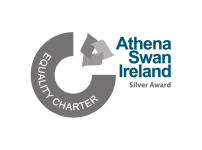UCD research exposes risk of Ireland’s “tax mirage”
7 May 2025

A major new investigation has revealed the scale of global profit-shifting strategies centred in Ireland, with nearly $1 trillion in intellectual property held in the country by multinationals.
Research led by (opens in a new window)Professor Aidan Regan from the UCD School of Politics and International Relations (SPIRe) found that the value of intangible assets – such as patents, software and licensing rights – held in Ireland has tripled since 2014.
Valued at $386 billion in 2014, the relocation of intellectual property to Ireland by major companies such as Microsoft, Salesforce, Adobe and Dell Technologies, as well as The Coca-Cola Company and pharmaceutical firms including AbbVie and Johnson & Johnson, had increased this figure to almost $1 trillion by 2021.
According to the new research, ninety per cent of these intangible assets are concentrated in just 80 Irish subsidiaries, almost all of which are owned by US-based multinationals.
“This is not just a story about tax. It is a story about democracy and wealth concentration in an era of corporate globalisation,” said Professor Regan.
“Ireland has done remarkably well from the global profit-shifting strategies of US multinationals but the entire growth model is premised on the US government tolerating this.
“The tax base is extremely concentrated, which is not sustainable. The extent of profit shifting is reflected in the nonsensical GDP figures, which make Ireland look a lot richer than it actually is. It completely distorts how we measure the economy.”
The relocation of intellectual property to Ireland has driven a sharp rise in recorded profits.
Between 2012 and 2022, annual pre-tax profits reported in Ireland increased by 207%, reaching more than $210 billion.
The research was conducted as part of Professor Regan’s European Research Council-funded project, Democracy Challenged, in collaboration with the Business Post.
It was carried by Professor Regan alongside doctoral researchers Linus Zechlin and Lakshmi Menon from SPIRe’s Quantitative and Computational Social Science PhD programme.
The findings are based on detailed analysis of Moody’s Orbis Historical and Orbis IP Historical databases, which contain financial data on over 550 million corporate entities worldwide.
They highlight the risks facing Ireland’s economy as a result of its dependence on US multinationals and international tax strategies.
The research also points to wider geopolitical uncertainties, including the recent imposition of steep tariffs on US allies by President Donald Trump.
It underscores Ireland’s vulnerability to shifts in global tax policy, business planning, and the strategic decisions of foreign corporations.
By: Rebecca Hastings, Digital Journalist, UCD University Relations
To contact the UCD News & Content Team, email: newsdesk@ucd.ie







